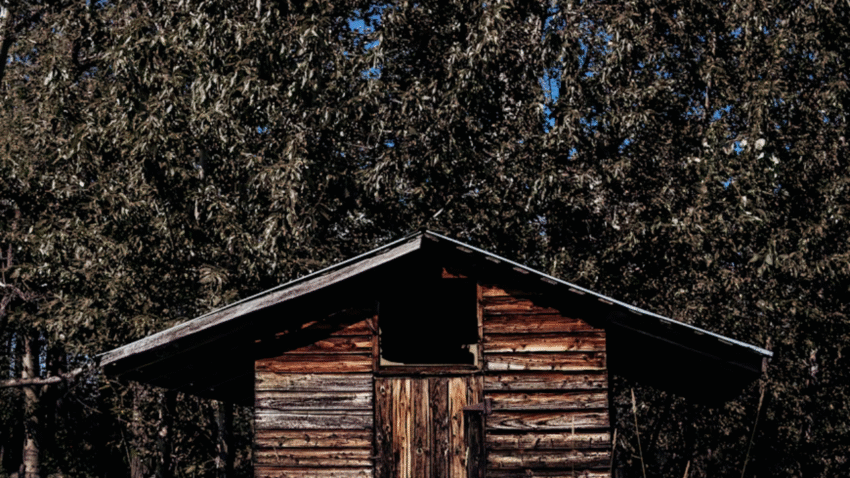Introduction
Mold is one of the biggest threats to a shed’s longevity. It thrives in damp, poorly ventilated spaces and can quickly damage wood, insulation, and stored items. Once mold takes hold, it can be difficult and costly to remove. The good news is that prevention is easy with the right approach. This guide will show you exactly how to prevent mold in your shed, keeping your structure dry, clean, and safe year‑round.
Why Mold Prevention Matters for Your Shed
Mold not only damages wood and other building materials but can also ruin tools, equipment, and stored belongings. Excessive moisture can lead to rot, foul odors, and even structural instability. A shed with mold issues is also less pleasant—and less safe—to use. Preventing mold growth protects your investment, improves air quality, and reduces the need for costly repairs.
Step‑by‑Step Guide to Preventing Mold in Your Shed
1. Start with a Strong Foundation
A shed that sits on damp ground is more prone to moisture problems. Build on a gravel pad or raised foundation to allow for drainage and air circulation underneath the structure.
2. Ensure Proper Ventilation
Install vents near the roofline or use a ridge vent to allow humid air to escape. Cross‑ventilation keeps air moving, which helps prevent condensation buildup inside the shed.
3. Keep the Roof Leak‑Free
Check for damaged shingles, rusted screws, or cracked panels. A leaking roof introduces constant moisture, which quickly leads to mold growth. Promptly repair any leaks to keep water out.
4. Seal Gaps and Cracks
Inspect doors, windows, and siding for gaps where rainwater can seep in. Use exterior caulk or weatherstripping to seal these openings.
5. Install a Vapor Barrier
Laying a plastic vapor barrier under the shed floor helps block ground moisture from rising into the shed.
6. Use Moisture‑Resistant Materials
When possible, build or upgrade your shed with treated wood, composite siding, and metal roofing, which resist mold better than untreated wood.
7. Control Humidity Inside the Shed
If your shed stores items that generate moisture—like compost or wet tools—use desiccant packs or a small dehumidifier to reduce humidity levels.
8. Store Items Properly
Keep boxes and tools off the floor by using shelves or pallets. Good airflow around stored items prevents trapped moisture.
9. Inspect and Clean Regularly
Check your shed at least once every season for leaks, condensation, or musty odors. Wipe away any small patches of mildew before they spread.
10. Maintain Gutters and Drainage
If your shed has gutters, keep them clear to direct water away from the foundation. Avoid landscaping that channels rainwater toward the shed.
Common Mistakes to Avoid
❌ Building Directly on the Ground
A shed placed directly on soil is prone to constant dampness.
✅ Solution: Use a gravel pad or raised foundation for drainage.
❌ Blocking Ventilation
Storing items against walls can block airflow.
✅ Solution: Keep at least a few inches of space between storage and walls.
❌ Ignoring Leaks and Condensation
Even small leaks create ideal mold conditions.
✅ Solution: Inspect after heavy rain and fix leaks immediately.
❌ Storing Wet Tools and Materials
Placing damp tools or firewood inside raises humidity.
✅ Solution: Let items dry before storage.
❌ Skipping Regular Maintenance
Mold prevention requires ongoing care.
✅ Solution: Make inspections part of your seasonal routine.
Extra Shed Tips & Hacks
- Paint or seal interior wood surfaces to add a protective barrier against moisture.
- Add a solar‑powered vent fan for extra airflow without increasing energy bills.
- Install gravel around the shed perimeter to reduce splashback and ground moisture.
- For more help, read our guide on how to fix a leaking shed roof to stop water issues at the source.
Conclusion
Preventing mold in your shed comes down to controlling moisture and promoting airflow. With a proper foundation, good ventilation, and routine inspections, you can keep your shed dry and mold‑free for years to come. A little maintenance now can save you a lot of time and money later—and help your shed last for decades.
